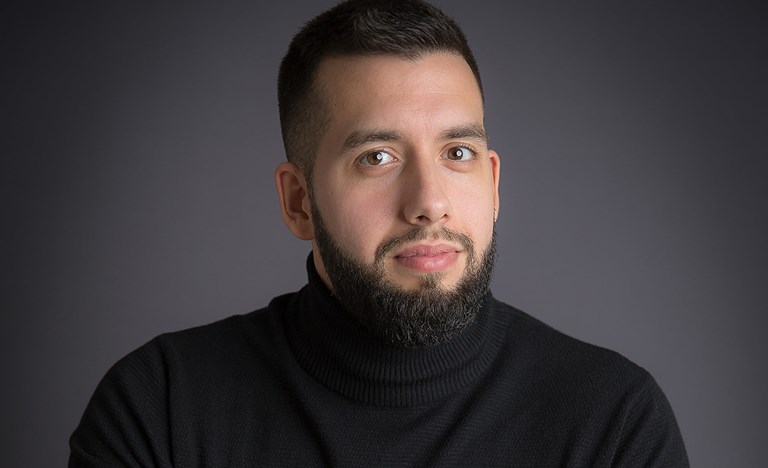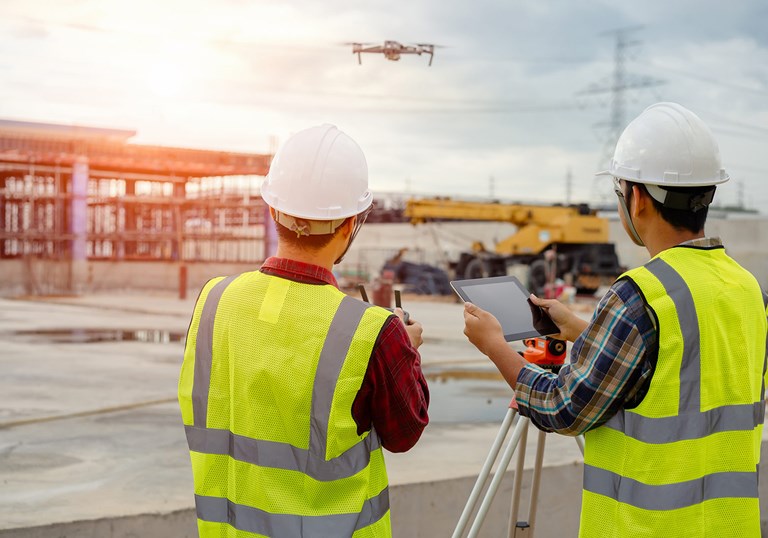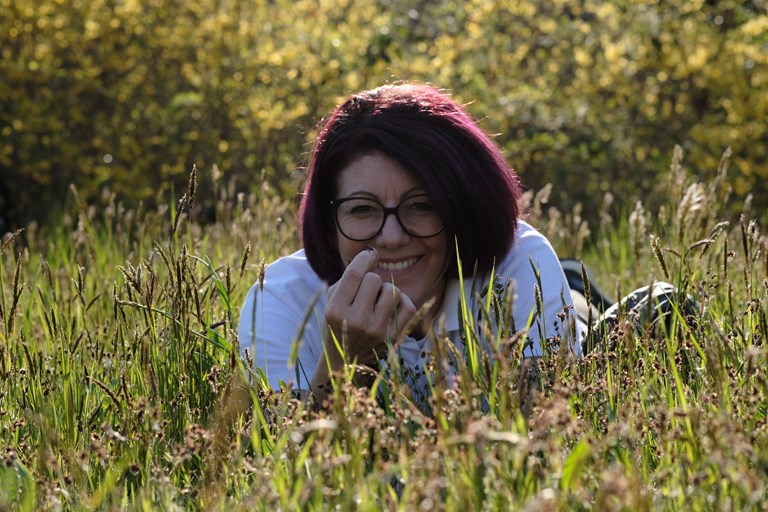
The algorithm inside the bridge
Words, when they become fashionable, risk losing their meaning. “Innovation” and “innovate” are terms that fill the speeches of managers and politicians, sometimes leaving the feeling that one has the illusion that it is enough to name the words to turn them into reality.
For companies, however, innovating not only means dedicating skills and resources, but also deciding whether to play an active role in or simply suffer from changes.
The question is not whether to innovate (always necessary to survive) but how? To try to understand the scenarios of innovation, we interviewed Fabio De Martino. Just over thirty years old, he already has a long track record of experiences in the corporate world, in the business world and in the startup world. He currently leads the Innovation office of Pini Group, an engineering company active in international design and consulting with over 400 employees.
What does the innovation manager do for a company?
“He has the burden and the honour of dealing with all the processes related to business transformation, analysing the organization and introducing, for example, new processes, new technologies, new forms of business, allowing the grounding of innovative ideas, in order to allow the company to keep up with the times. We live in an age in which the only constant is change. Innovation is the prerogative not to be overwhelmed by evolution.”
So the changes in this period are not lacking....
“Absolutely, in many areas of technology we are witnessing momentous changes. This is also happening in the engineering, architecture and construction sectors in general. Sectors that I know closely given my role in the Pini Group.”
For example?
“The examples within the engineering and construction world are many, from the role of artificial intelligence, to blockchain, to robotics applied to the construction world. Then there are immersive technologies and the whole world of metaverse.
The Metaverse will be a challenge for everyone. For example, as Pini Group we are among the first offices in Switzerland to tackle projects in the metaverse, with clients of national and international relevance who are entrusting us with major assignments.”
Will artificial intelligence also play a role in design?
“Certainly, artificial intelligence will have a huge impact on both the design and maintenance of engineering works, preventing failures and collapses of the works themselves.
Let’s take a bridge as an example. Today, we are able to create a digital twin in 3D that allows us to perform predictive analyses useful for assessing the ‘health’ of the work. The digital twin is a highly complex virtual model that is an exact replica of the physical infrastructure.
Having done this, we are able, for example, to virtually inspect the work.
By combining engineering, mathematical, computer and technological knowledge, we are then able to develop algorithms, which we can feed thanks to the Big Data we collect by laying sensor networks directly on the bridge. These algorithms allow us to make predictive analyses, to understand how the bridge is behaving and how it will behave in the future, avoiding, for example, tragedies such as those that the news has often accustomed us to.”
Are these 3D models only virtual?
“The digital twin is a virtual model. But the data collected and the analyses made are also useful, among other things, for the construction of the works. The data collected allows us to understand the actual behaviour of the structures and can also be used for the construction of the works themselves, in a world that will see 3D printing increasingly used in the construction sector. Then we could have structures that are efficient, safe, made of innovative materials and perhaps even wink at the environment.
In Amsterdam, the first ‘printed’ bridge is already a reality.”
Other innovative technological applications?
“Certainly, there are many technologies that will have an impact on the world of engineering and construction. However, I would like to emphasise that often innovating is not necessarily creating something disruptive. It is often the small improvements that make the difference. Sometimes, it is enough to look at things from a different perspective, from an unusual point of view. That is why it is important to let yourself be contaminated, to explore areas other than your own. This is one of the characteristics that a good Chief Innovation Officer must have.”
An example of other technological applications?
“There are so many examples we could give. In recent years, for example, drones have entered the world of engineering and measurement. In the Pini Group we have started to explore other uses of these technologies. Today, we also operate in the environmental monitoring sector, in the Oil & Gas sector, in the 4.0 agriculture sector and in the archaeology sector. Alongside the inspection of a bridge, we have also analysed the condition of a vineyard in the hills of the French-speaking part of Switzerland, or the implementation of pest control measures on a rye crop in the Po Valley, or the inspection of a photovoltaic park, or even a series of wind turbines.
By combining internal and external skills, in an Open Innovation perspective, we are also able to diversify the business and satisfy, even more, the customers of all time.”
Is it possible to create innovation alone?
“I think that when it comes to innovation one should never set boundaries and borders. Those who deal with innovation have the task of monitoring the trends in their sector by investigating possible futures, in order to make the best strategic decisions to address them. The concretisation of the innovation strategy must be done by opening up to the outside world, in an Open Innovation perspective, by pursuing partnerships, enhancing the skills already developed by others and combining them with one’s own. A company cannot have all the skills within it. Moreover, it is important. Innovation is not something to be confined, but something to be propagated.
Synergies must be created with universities, research centres, other companies or start-ups. Contamination becomes fundamental in order to be able to implement a solid innovation strategy. In the Pini Group, to meet this need we have created, among other things, a dedicated innovation fund - pini4innovation -, with which we support innovation-related projects and also invest in innovative start-ups and SMEs’.
Do you think there will be changes in professional skills in your sector too?
“We start from the assumption that progress cannot be stopped. From my point of view, the subject of reskilling and upskilling must be addressed immediately.
In this regard, I like to quote an American philosopher Eric Hoffer, to whom this phrase has been attributed: ‘in a time of change, he who learns inherits the future. Those who already know find themselves well equipped to live in a world that no longer exists...’
Robotics will not lead to job losses as long as we think about the conversion of human labour.
Algorithms will not replace engineers, if they are able to develop the right skills, which technology cannot supplant.
It is a matter of improving and sometimes implementing one’s skills to stay in the market, as professionals and as companies.”
Are there any trends to watch out for?
“There are so many trends. I think what makes the difference is the ability to connect the dots, the ability to go beyond one’s own sector, evaluating progress and technology with a broader perspective. This must be the ability of those who deal with innovation.”
Fabio De Martino
Year of birth: 1989
Profession: Innovation Manager and Startupper
After training as a civil engineer at SUPSI and working for Pini in the civil engineering sector, De Martino completed a Master’s degree in Business Administration at Bologna Business School and a Master’s degree in Business Strategy and Management at 24ore Business School.
From 2014 to 2021 he worked at AFRY, with responsibilities related to the management of sales teams and the management of the first Italian branch, as co-director.
In 2021, he returns to Pini with the role of Group Chief Innovation Officer.
At the same time, he has developed a strong experience in the startup and innovation world. He co-founded several start-ups, ranging from agritech to digital via foodtech. He started two incubators for innovative ideas and wrote a book, which became an Amazon bestseller in its category entitled “The Startupper’s Handbook”, written together with the founders of one of the most the important Edutech startups on the Italian scene, of which he is a partner.

Playlist



